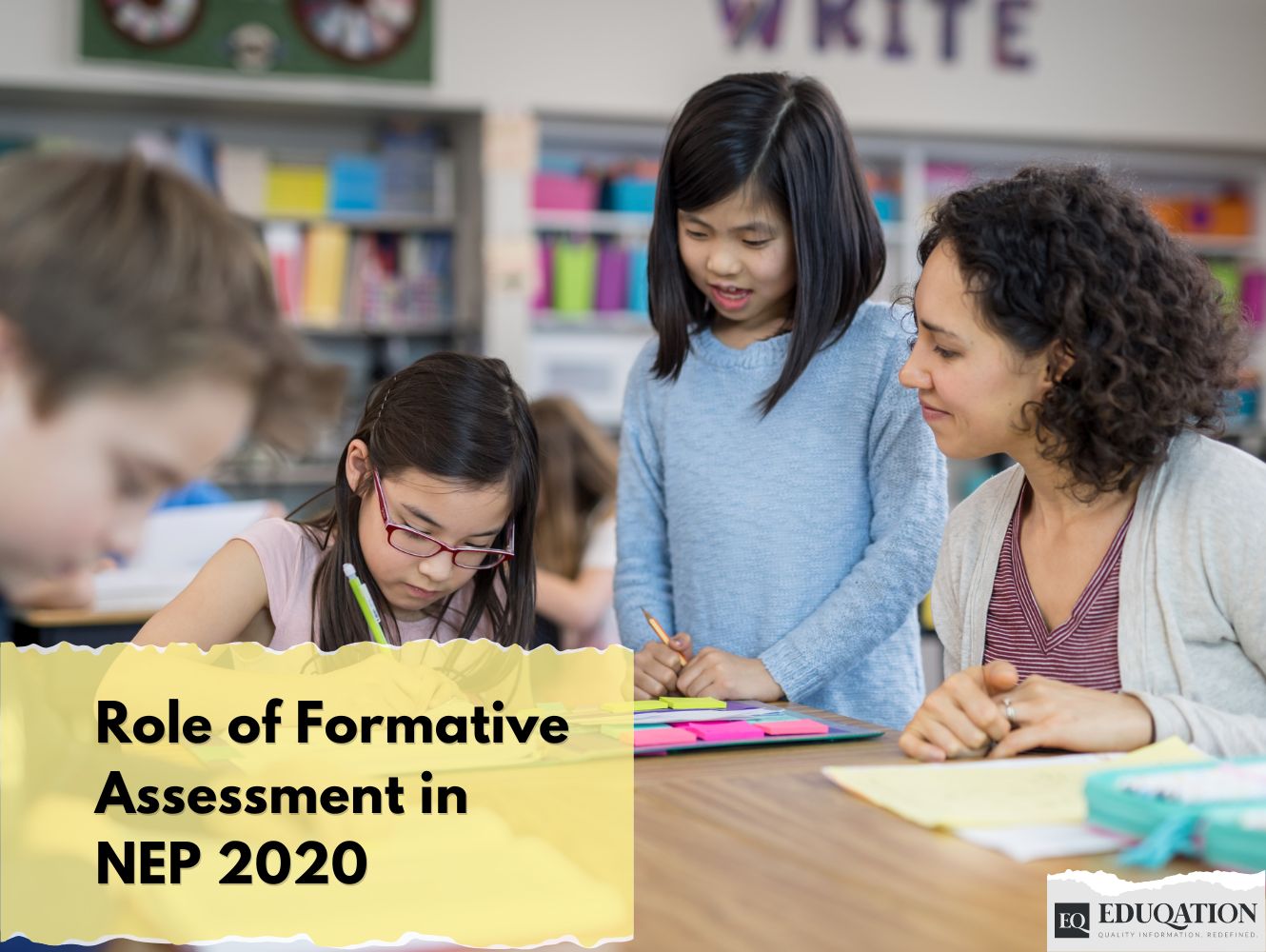The Role of Formative Assessment in NEP 2020
The New Education Policy (NEP) 2020 marked a fresh chapter in India’s educational journey. Unlike traditional policies, NEP 2020 introduces innovative teaching methods and assessment techniques. Central to this change is the role of formative assessment, a crucial tool that focuses more on continuous learning and less on end-term exams. Instead of just marks on a paper, think of assessments that help students understand, grow, and develop their skills. This revamped approach in NEP 2020 emphasizes real learning over rote memorization. Just as a foundation determines a building’s strength, formative assessments set the stage for holistic, meaningful education. Dive in to learn how this system can redefine a student’s learning experience.
Understanding Formative Assessment
Formative assessment stands out as a game-changer in NEP 2020. But what is it? Imagine a teacher checking your understanding while you learn, not just after you finish a chapter. It’s like a coach guiding a sportsperson during practice, ensuring they’re ready for the main game. Unlike summative assessment, which tests you at the end, formative assessment focuses on ongoing feedback. This way, students can identify gaps in their learning and address them immediately. It’s not about the final score, but the journey to get there. This approach ensures a student’s growth and fosters a deeper understanding of subjects. So, while summative assessment gives the final verdict, formative assessment nurtures and prepares you throughout the learning process.
Role of Formative Assessment in NEP 2020
NEP 2020 introduces a fresh approach to education. One major shift is the emphasis on formative assessment. Gone are the days of only year-end exams. Now, students undergo regular, low-pressure checks on their understanding. This means immediate feedback, allowing them to grasp concepts better.
Formative assessment stands out in NEP 2020 for a reason. It focuses on a student’s ongoing learning journey. Each assessment acts as a stepping stone, guiding them towards deeper understanding. It highlights areas of improvement, helping educators adapt their teaching styles.
But why is this method a game-changer? It promotes active learning. Students aren’t just studying for exams. They engage with subjects, nurturing their curiosity. Teachers become facilitators, making learning a collaborative effort. The NEP 2020, with its thrust on formative assessment, ensures that students don’t just learn but truly understand and apply knowledge.
Benefits of Embracing Formative Assessment
Formative assessment reshapes the learning landscape. One big win is the constant feedback. Instead of waiting for a final exam, students know where they stand regularly. This clarity boosts their confidence and keeps them engaged.
Another perk? It sparks critical thinking. With frequent assessments, students can’t just memorize. They need to grasp concepts, fostering a deeper understanding. This method nudges them to be creative and think out of the box.
Stress, a constant companion during exam times, takes a back seat. The spread-out, low-stakes nature of formative assessment reduces anxiety. No more cramming the night before! Learning becomes an enjoyable journey. It steers clear of rote methods and promotes genuine understanding. Embracing formative assessment means paving the way for meaningful, stress-free education.
Challenges in Implementing Formative Assessment
While formative assessment is promising, it has its hurdles. Firstly, educators need training. Shifting from traditional methods to this new system isn’t easy. It’s not just about changing the exam pattern. It’s about understanding the essence of continuous assessment.
Next, there’s the battle with set mindsets. Many believe in the old ways, thinking final exams are the best judge of a student’s caliber. Shaking this belief and making them see the bigger picture can be tough.
Lastly, fairness is key. With continuous evaluations, ensuring every student gets a level playing field is crucial. It’s a challenge to keep evaluations consistent, without biases. But with the right tools and training, it’s not impossible.
Embracing formative assessment is a journey with its own set of challenges, but it’s a journey worth taking for a brighter educational future.
Case Studies
A school in Pune stands as a shining example of embracing formative assessment. Instead of monthly tests, students undergo weekly assessments. These aren’t typical pen-and-paper tests. They involve group discussions, presentations, and project work. The outcome? Students are more engaged, and teachers get a clear picture of every child’s progress.
In Bangalore, a renowned education institution made headlines by scrapping the year-end exam system. They shifted to ongoing assessments, where teachers note daily student interactions, class participation, and more. Parents report children are more eager to attend school, showing a love for learning.
These instances prove that schools across India recognize the potential of formative assessment in the NEP 2020. The transition isn’t without challenges, but the positive outcomes are evident. It’s a step towards a holistic, stress-free, and more meaningful education system.
Conclusion
The “Formative Assessment in NEP 2020” promises a transformative change for India’s education landscape. Rather than just focusing on scores, this method sheds light on a student’s complete learning journey. It offers insights into strengths, areas of improvement, and personal growth.
Imagine a future where every student is excited to learn, not fearing exams but enjoying the process of understanding. This is the potential of the NEP’s approach to assessment.
But change isn’t automatic. It requires collective effort. Schools, teachers, and even students and parents have vital roles to play. It’s time we all join hands, understand the value of this shift, and work together. By embracing this new method, we’re not just changing an education system; we’re shaping the future leaders, thinkers, and innovators of our country.
